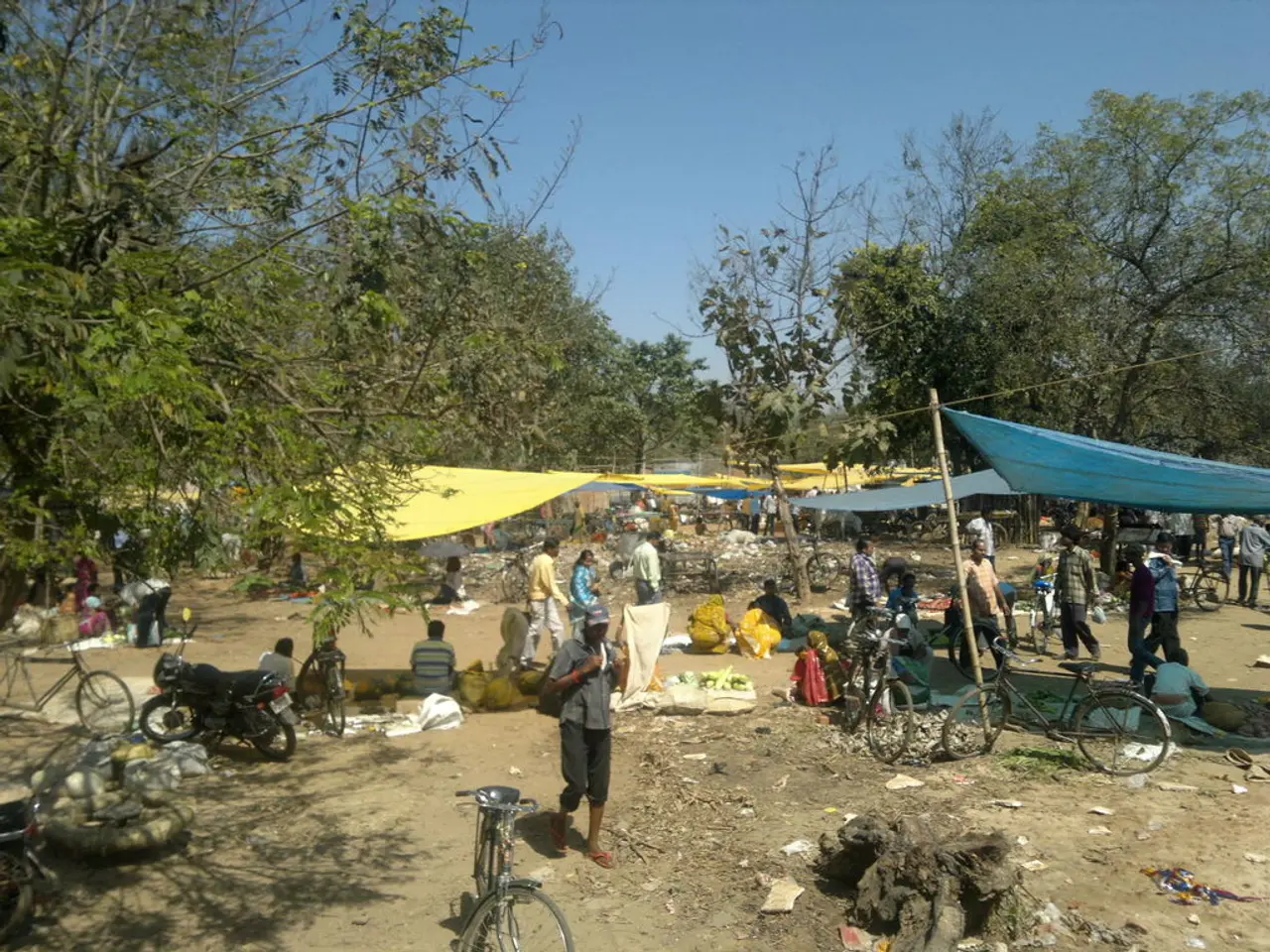Can one truly set up camp in the wilderness without legal restriction?
Wild Camping in Switzerland: A Cantonal Perspective
Wild camping, or bivouacking, in Switzerland is a popular activity for many outdoor enthusiasts. However, the rules and regulations vary significantly across the country's 26 cantons.
In many cantons, wild camping is generally prohibited. For instance, in Jura, Uri, Nidwalden, and Appenzell Innerrhoden, camping is not allowed without explicit permission or in designated areas. On the other hand, some cantons, such as Ticino, Bern, and Graubünden, allow single overnight stays in the mountains, above the tree line, with the owner's permission.
One of the key factors to consider when wild camping in Switzerland is the tree line. Most cantons permit camping only above this line in the mountainous regions. For example, in Vaud, Zurich, Zug, Schaffhausen, and Schwyz, camping is allowed on private property above the tree line, provided the owner gives consent. In Obwalden, camping is allowed outside approved camping sites, as long as no public or private interests are affected.
In some cantons, specific rules apply. In Neuchâtel, camping is permitted on private land above the tree line, but the tent must be taken down during the day for multiple overnight stays. In Luzern, camping is allowed on public land unless explicitly prohibited, on private land and in the forest with the owner's permission, and for emergency camping. However, camping is prohibited in nature reserves and landscape protection zones around certain lakes, on rest areas or parking lots with explicit regulations or prohibitions, and for more than 30 days in the same location.
In Geneva, single overnight stays are permitted on private property above the tree line and for emergency bivouacking. However, wild camping is prohibited in the wilderness without a permit, in the forest except at designated campsites, in nature reserves, national parks, game sanctuaries, and wildlife protection zones, and where entry is prohibited.
It is essential to note that camping on private property requires the owner's permission. Entering a fenced garden without permission can result in a fine. The area must be at least partially enclosed by a hedge or fence. If damage is caused to the property, the owner can claim damages.
The penalty for illegal wild camping can vary greatly depending on the canton and municipality. Beobachter expert Norina Meyer states that the fines can range from a few hundred francs to as much as 2000 francs, as in the city of Bern.
In cantons like Schaffhausen, Solothurn, St. Gallen, Thurgau, and Wallis, there are no cantonal regulations for rest areas or parking lots. In Appenzell Ausserrhoden, single overnight stays are permitted on private property with the owner's permission, in the mountains above the tree line, and for emergency overnight stays.
In summary, wild camping is not generally prohibited in Switzerland, but rules vary by canton. It is crucial to familiarise oneself with the specific rules of the canton and municipality before setting up camp. Always seek the owner's permission when camping on private property and respect the environment to ensure a safe and enjoyable wild camping experience.
Read also:
- Ad Agency Group Cheil Consolidates Operations in North America to Focus on Untapped Mid-Market Sector
- Aligned spine complications: What are potential indicators?
- Connection between vaping and heart issues
- Restaurant entrepreneur leaders disclose their most effective strategies to restaurant owners amid cost increases, evolving customer behavior, and pandemic aftermath, also unveiling the optimal price hike level to prevent customer loss.








